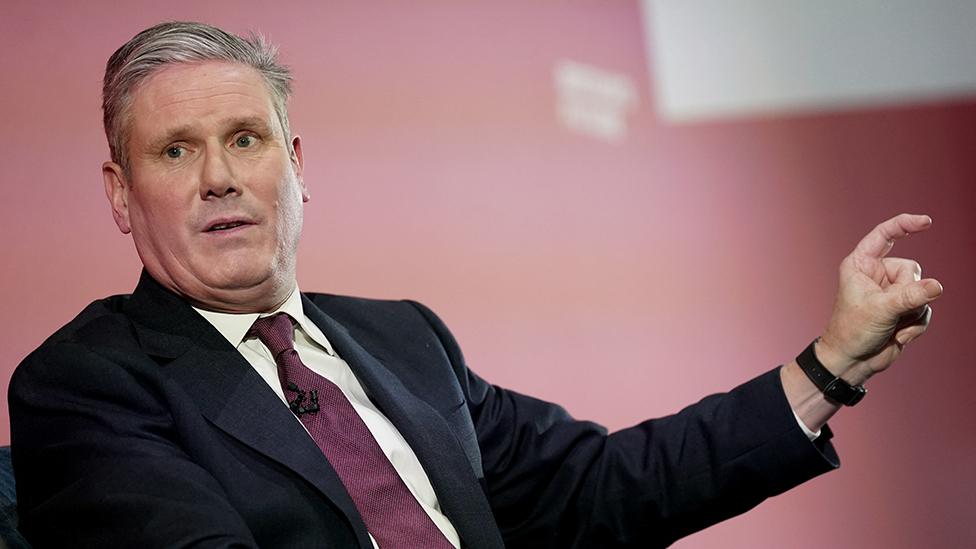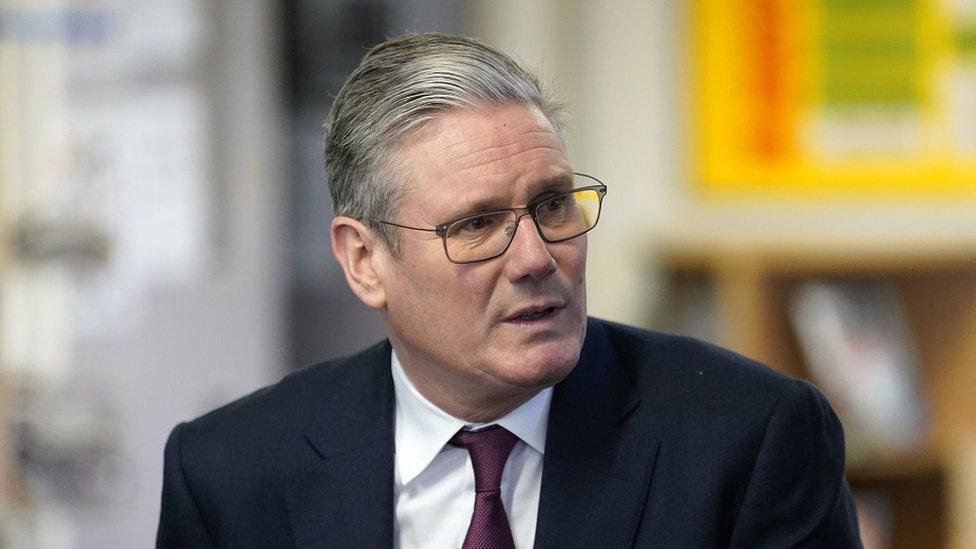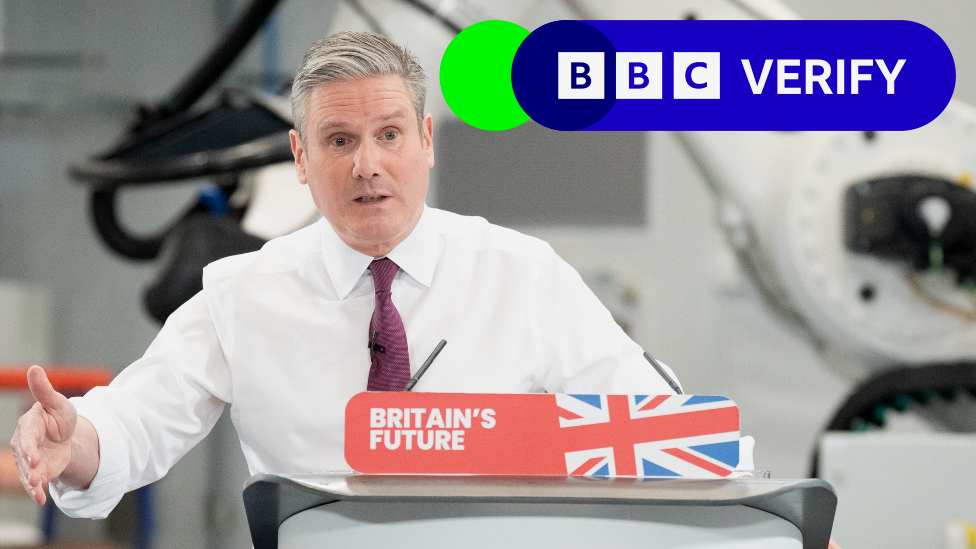Keir Starmer: The politics of a U-turn
- Published
After weeks of speculation, the Labour leader says the party is dropping its spending commitment.
Is changing your mind a good idea?
Labour has moved fairly recently into a new headquarters about 15 minutes from Parliament.
I was invited there to interview Sir Keir Starmer about his decision to bin a long standing promise to spend £28bn a year on the green industries of the future.
This is a U-turn where every degree of the twist has played out in plain sight.
A number - £28bn - announced in 2021.
It was then diluted in its intended delivery last summer.
And finally binned this week.
Why?
Because, in the end, the party felt shackled to a number they felt could only be a political negative; they were never likely to achieve that level of spending anyway, given their self-imposed economic rules.
And meanwhile critics said it was a number that would lead to vast borrowing or tax rises.
Add to that senior figures tying themselves in knots and contradicting each other in public about whether the policy was a goner or not. Something had to give, and pretty quickly.
But attempting to articulate that next to nothing will change in practical outcome - as Sir Keir does - while junking the headline figure, isn't an easy argument to make.
Even if this number that has been causing them so much grief included, according to their projections, vast sums, they had not actually worked out how to spend.
But Conservative folk text me to claim Labour's position amounts to at least partially blaming the change on Tory tax cuts which Labour themselves support and won't reverse, and question the costings of the policies they remain committed to.
Labour counter with what about Liz Truss and her crashing of the economy?
All of which poses this question: was it naïve for Labour to ever commit to £28bn in the first place?
Labour's leader in Scotland, Anas Sarwar, told us on BBC Newscast that £28bn had been "arbitrary."
But back to that question I asked at the start; is changing your mind a good thing or a bad thing?
Keir Starmer said in all the places he had worked, the only place that regards changing your mind when circumstances change as a bad thing is Westminster. It even has a label that I used earlier: a U-turn.
He reckons what he is doing amounts to a pragmatic shift which acknowledges changing circumstances.
The Conservatives say he is forever changing his mind.
But the Conservatives have themselves done plenty of about turns.
On HS2, on electric cars, on railway station ticket staff, on a bonfire of old EU era laws to name just a few.
Maybe the original ideas were good ones. Maybe they weren't.
But is switching from one to the other inherently bad?
The challenge for an opposition leader, attempting to define themselves in the minds of voters, is they start from a low base - people not knowing much about them.
If you then change your mind a lot, as Keir Starmer has, that process of introducing yourself and what you're all about, gets harder.
You can be portrayed as not believing in anything.
Sir Keir's opponents hope the breadth of his changes of mind - on bankers' bonuses, childcare in England and overseas aid, to mention just three since he's been leader - is a vulnerability they can expose.
They see £28bn as the latest case study.
Labour calculate a short stint of being accused of a U turn is better than months of being lambasted over that big number, £28bn.
It is perhaps also true that political opponents attack a party for making U-turns when they lack alternative lines of attack.
Not least because a U-turn, often but not always, switches that opponent from a position you oppose to the one you have yourself.
And so the U-turn removes the point of difference.
Which brings me back to a phrase I struggle to shift from my head to describe Labour's approach in recent months.
A phrase first uttered into my ear at the Labour Conference last autumn.
"We need to be the smallest possible moving target".
Critics say Labour is eroding its points of difference with the Conservatives. The very thing, they argue, it should be about.
For others, it's about shaking off points of difference that can be weaponised by opponents.
After an awkward few weeks, Labour has removed a target in removing a promise.
Related topics
- Published8 February 2024

- Published9 February 2024

- Published8 February 2024

